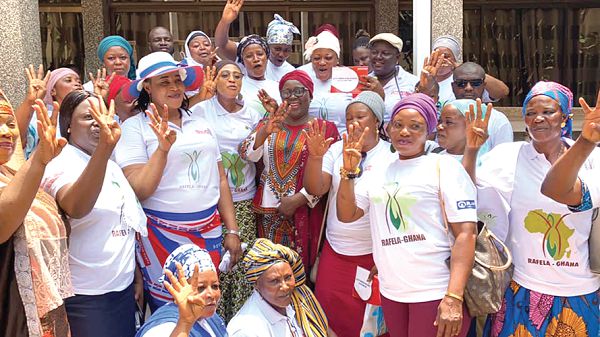The Women Caucus of the National Association of Local Authorities of Ghana (NALAG) has launched a network to enhance women participation in decision making and address challenges facing their development.
Dubbed: “RAFELA-GHANA Chapter,” it is a network of locally elected women of Africa which seeks to work towards advancing the concerns of women at the heart of local government policies and strategies.
It would also ensure the participation of women in decision making within government institutions as well as strengthening women economic empowerment and advocating the promotion of women leaders at the community level.
Launch
At the launch in Tamale, the Municipal Chief Executive (MCE) for Sagnerigu, Hajia Mariam Iddrisu, who is the President of the network, explained that the network would be working closely with organisations with like-minded vision, mission and objective for women to promote their participation in local governance.
“The network works to achieve four main goals, namely: African cities without street children, African cities with zero tolerance for gender-based violence, African cities with favourable economic empowerment for women and African cities with equal participation of women in local line and decision making in all aspects of life,” she added.
Women in governance
The Minister of Local Government and Rural Development, Hajia Alima Mahama, who graced the occasion, encouraged women to make themselves available for political participation at both local and national levels.
According to her, out of the total number of candidates who stood for the district assembly level elections, only eight per cent were female with only three per cent of them winning the contest.
"We have very few numbers in our assemblies which is definitely unacceptable. With the women population of about 51 per cent we should be doing better at the local level where all the programmes of government are anchored on.”
“So if at the local level you are not there to add your voice to decision making there is no way of mobilising you to participate in that process,” she said.
Hajia Alima noted that despite women being more than men in the country, there were only 8.1 per cent of women in the local government with over 90 per cent, being male, a situation she described as worrying and needed urgent attention.

